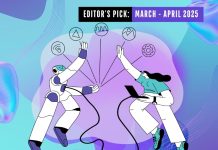There has been no shortage of stories in the media highlighting the potential negative impact that Ai could have on society, with some tech leaders even calling for a pause on Ai development. People are concerned by the idea of Ai potentially changing the nature of their jobs or even posing a threat to humanity. It’s no wonder the term ‘Ai anxiety’ is becoming commonplace as this technology becomes increasingly more advanced by the day.
Despite these concerns, there are substantially more reasons for people to be optimistic about Ai than to be afraid of its development. Generally, technology creates more opportunities than it destroys, and Ai has the potential to revolutionise the way we live and work forever. For years, many businesses have used Ai to automate processes and reduce time spent on administrative tasks. Since the popularisation of generative AI, job roles have been redefined, and there has been a renewed emphasis on the personal touch and creativity that only humans can provide.
With the Global Ai Summit taking place in Autumn, the focal point will be how to develop Ai responsibly so that this technology is not misused, ensuring that businesses put ethical innovation over fast profit. These initiatives seek to alleviate any anxieties surrounding Ai, fostering a more optimistic outlook for its future. Regulating such a rapidly evolving and influential technology is a complex task that requires prompt, globally-aligned discussions to achieve positive outcomes.
How Ai can benefit workers rather than replace them
The way Ai is benefitting workers and improving job satisfaction will vary from industry to industry and job to job. A common example is customer service, an area where Ai is already having an enormous impact. People working in customer service roles may often face recurring queries from customers. Ai is able to automate many of these queries, as well as coach customer service agents on how to deal with issues that are a bit more complex, by tracking sentiment and offering suggested answers. In this scenario, Ai not only boosts productivity, but also the morale of the agents using the technology and improves the customer experience by resolving issues faster.
The Ai revolution is causing workplace productivity to increase, with an anticipated productivity growth of over 1.5% in the next 10 years according to research by Goldman Sachs. As Ai technology is embedded into enterprise software, innovations like ChatGPT have accelerated the understanding of generative Ai and its potential impact on organisations. Widespread adoption of Ai will happen faster as organisations seek to keep up with the pace of innovation. Subsequently, the productivity wins will come quicker.
However, Ai cannot handle everything, there must be human oversight. There is a risk of inaccurate information being distributed because of hallucinations, which is when Ai misinterprets data it is trained on and provides false information. It’s important for organisations to understand Ai’s limitations. If not trained on accurate and sufficient data, Ai has the potential to perform tasks incorrectly. This highlights the need for businesses to prioritise oversight, appointing a qualified individual who can effectively supervise and guide the Ai system. Ai must be continually parented – humans must closely monitor its responses in order to continue improving its performance and the quality of its outputs.
While Ai has made significant advancements, there are certain capabilities, such as creativity, that it currently lacks compared to humans. This again highlights the importance of human involvement, as Ai cannot engage in strategic planning or autonomously establish its own objectives. Humans have a unique ability to excel in these areas, setting them apart from Ai. Therefore, jobs that rely on human empathy and creativity will remain secure. However, the potential of Ai to enhance collaborative efforts should not be disregarded, and ongoing developments in the field may present new possibilities in the future.
Should Ai be considered an existential threat?
The idea that Ai is an existential threat isn’t an unfounded claim. Ai is extremely impactful and has the potential to change the world, which is why it needs the right guardrails and oversight from those creating it, as well as those using it, to ensure its safety and reliability. The foundational elements of responsible Ai include transparency, accountability, and alignment with human values and rights. The focus on privacy and data protection in Ai development will boost trust in this technology.
Ai’s influence on various industries, including healthcare, customer service, and environmental protection, will continue to expand, shaping people’s daily lives in profound ways. If we are to recognise the limitless potential of Ai, it is imperative that we adopt an optimistic perspective while addressing legitimate concerns about Ai anxiety. By focusing energy on embracing Ai’s potential to improve lives, we can harness its full capabilities and contribute to its responsible development.
About the Author
 Dan O’Connell is the Chief AI Officer at Dialpad. Previously, he was the CEO of TalkIQ, a real-time speech recognition and natural language processing start-up that Dialpad acquired in May of 2018. Prior to TalkIQ, he held various sales leadership positions at AdRoll and Google.
Dan O’Connell is the Chief AI Officer at Dialpad. Previously, he was the CEO of TalkIQ, a real-time speech recognition and natural language processing start-up that Dialpad acquired in May of 2018. Prior to TalkIQ, he held various sales leadership positions at AdRoll and Google.




































